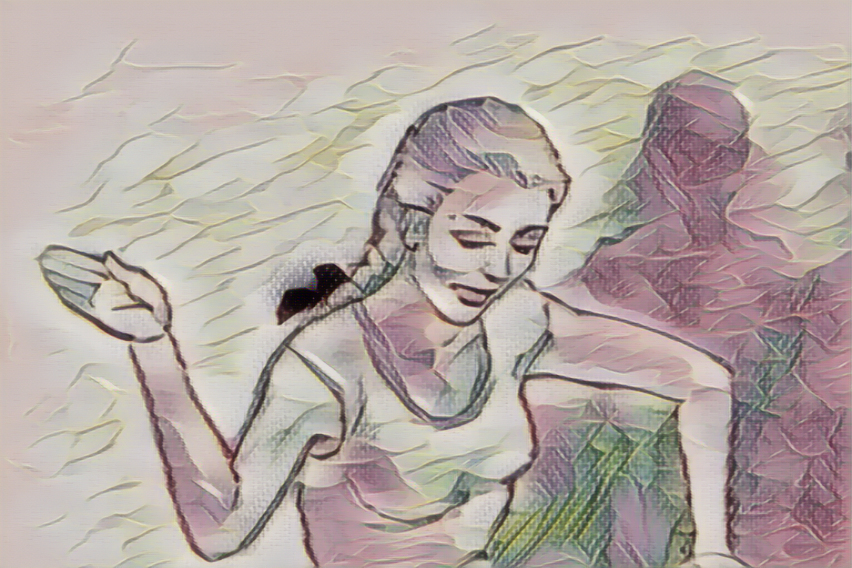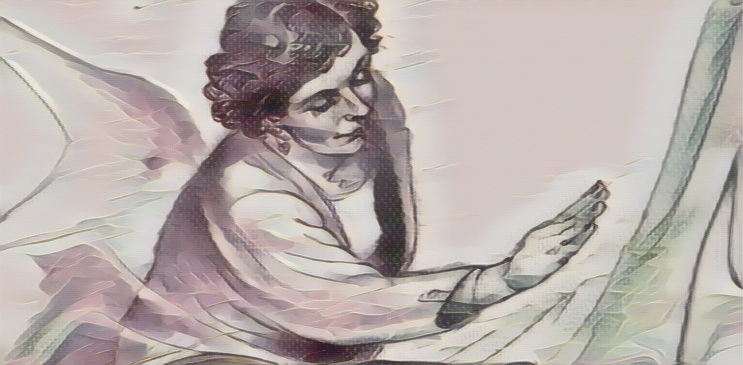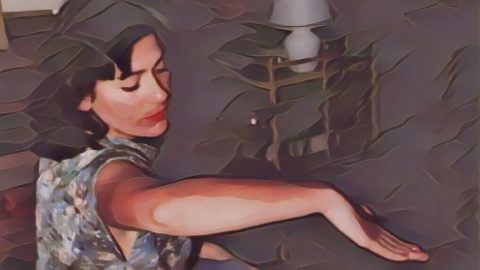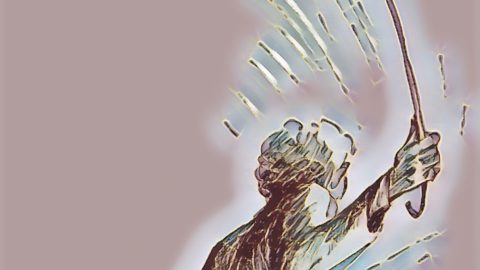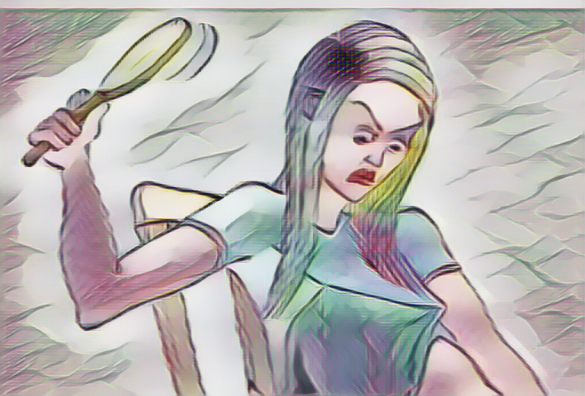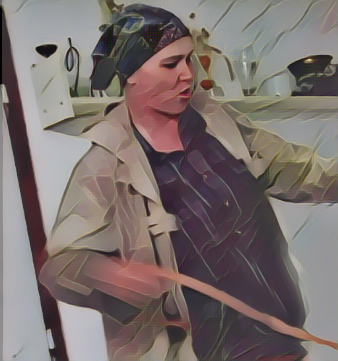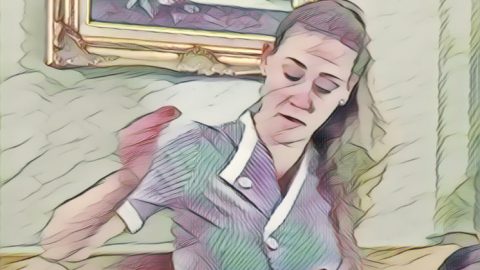(gap: 2s) There are certain recollections from one’s youth that remain as vivid as the sunlight streaming through a window on a summer’s afternoon. It was in my mid-twenties, when the world still seemed full of possibility, that I became rather taken with the notion of a life spent in perpetual motion—those curious individuals who made their homes in caravans, travelling from place to place with a cheerful disregard for the ordinary. I imagined them as practical, forthright people, the sort who worked with their hands and wore their honesty as a badge of honour.
(short pause) Yet, as I soon discovered, the caravan community was as varied as any English village. There were the quiet and the talkative, the dreamers and the industrious, the solitary and the sociable. Each possessed their own peculiarities, their own stories, and their own manner of passing the time.
(pause) During this period, I became acquainted with a lady named Margaret. She was a few years my senior, with a gentle manner and a ready smile, though she had no children of her own. We got along exceedingly well, and I found her company both comforting and lively.
(short pause) Margaret, however, was not without her opinions. She often spoke, with a mixture of exasperation and fascination, of two middle-aged women who resided together in a neighbouring caravan, along with their lively group of children. In retrospect, I realise they were partners, though in those days such arrangements were rarely discussed openly.
(pause) “Those two are always at it,” Margaret would say, shaking her head. “Spanking their children for every little thing. I do wonder how the poor dears bear it.” I must confess, I was rather intrigued by these women, who seemed to me both formidable and curiously maternal.
(short pause) Both were tall, with a certain dignified presence. They favoured sandals or bare feet, and their laughter—when it came—was deep and hearty. Of the two, I was most drawn to Susan, the more substantial of the pair, whose lap seemed to me the very picture of comfort and authority. She had a way of looking at you that made you feel both noticed and, if you were not careful, slightly chastened.
(pause) One afternoon, as the sun slanted through the trees and the air was thick with the scent of freshly cut grass, I found myself witness to a scene that might have come straight from the pages of a Just William story. The caravan stood gleaming in the sunlight, its windows flung open to the summer air, and the garden was alive with the shouts and laughter of children. It was then that Mary, a tall, no-nonsense woman with a determined jaw and a sensible skirt, appeared at the door, her hand firmly grasping the ear of young Peter.
(short pause) Peter, with his shock of sandy hair and a face that could never quite conceal its mischief, was being marched across the lawn with all the ceremony of a prisoner to the gallows. His eyes darted about, searching for escape, but Mary’s grip was unyielding. Behind them, the other children—Edward, Geoffrey, and little Timothy—watched with a mixture of horror and fascination, as if witnessing the climax of a particularly thrilling adventure.
(pause) “Susan!” called Mary, her voice ringing out with the authority of a headmistress. “I have found our young rascal behind the shed, in the company of that dreadful Arthur Jenkins, and what do you suppose they were up to? Drinking beer, if you please! At his age!” Her cheeks were flushed with indignation, and Peter’s own face was a study in mortification and bravado.
(short pause) Susan, seated in a sturdy wooden chair beneath the apple tree, looked up from her knitting with a calm that only years of experience could bestow. She was a woman of ample proportions, her hair swept back in a neat chignon, and her eyes twinkled with a mixture of amusement and resolve. “Bring him here, Mary,” she said, her voice gentle but firm, “and let us see what the young gentleman has to say for himself.”
(pause) Mary propelled Peter forward, releasing his ear at last, and he stood before Susan, shifting from foot to foot, his hands thrust deep into his pockets. The garden seemed to hold its breath. Even the birds fell silent, as if awaiting the outcome.
(short pause) “Well, Peter,” Susan began, folding her hands in her lap, “what have you to say for yourself? Is it true you were drinking beer with Arthur Jenkins?” Peter’s chin jutted out, and for a moment it seemed he might deny everything. But under Susan’s steady gaze, his bravado faltered. “Yes, madam,” he muttered, his voice barely above a whisper.
(pause) “And where did you obtain the beer?” Susan pressed, her tone kind but unyielding. Peter hesitated, glancing at the other children, who were now clustered at the edge of the garden, wide-eyed and silent. “I promised Arthur I would not say,” he replied, his loyalty to his friend warring with his fear of the consequences.
(short pause) Susan regarded him for a moment, her expression softening. “It is a fine thing to be loyal, Peter, but it is a finer thing still to be honest. You must learn that actions have consequences.” She set aside her knitting and patted her lap, a gesture as old as time. “Come here, my boy.”
(pause) The moment had arrived. Peter’s face blanched, but he obeyed, shuffling forward with the air of one resigned to his fate. Susan guided him gently across her lap, arranging him with a practised hand. The other children craned their necks, scarcely daring to breathe.
(short pause) Susan raised her hand, and the first smack rang out, sharp and decisive. Peter gasped, more in surprise than pain, and Susan continued, her hand falling in a steady rhythm. “You—must—not—sneak—about—like—a—common—ruffian,” she intoned, each word punctuated by a firm smack. Peter’s cheeks flushed crimson, and he bit his lip, determined not to cry out before his audience.
(pause) The spanking was not cruel, but it was thorough, and Susan’s words—delivered in that measured, motherly tone—seemed to carry more weight than the punishment itself. “You are a good boy at heart, Peter, but you must learn to think before you act. Beer is for grown men, not for schoolboys with more mischief than sense.”
(short pause) As the spanking continued, Peter’s resolve began to crumble. A tear slipped down his cheek, quickly brushed away, but Susan noticed and her hand slowed. She finished with a final, gentle pat, and then helped him to his feet. “There now,” she said, her voice warm, “it is over. You have paid for your mischief, and I trust you will think twice before repeating it.”
(pause) Peter stood, rubbing his eyes and trying to regain his composure. The other boys looked on, a mixture of relief and admiration in their faces. Susan smiled at him, her sternness melting into affection. “Off you go, Peter. And mind you stay away from Arthur Jenkins and his wicked ways.”
(short pause) Peter managed a shaky grin and, with a sudden burst of energy, dashed off towards the caravan, his dignity somewhat restored by the speed of his retreat. The garden seemed to exhale, and the birds resumed their song as if nothing had happened.
(pause) Susan glanced up and caught my eye, a twinkle of amusement in her gaze. “Naughty boys must be spanked, you know,” she said, her tone grave but not unkind. “Otherwise, how are they to grow into good men—good husbands and fathers?” She regarded me for a moment, her eyes searching. “Did you ever drink under-age?” she asked, her lips curving into a faint smile.
(short pause) I admitted, somewhat sheepishly, that I had indeed sampled my first beer before the law allowed. Susan’s smile broadened into a wry grin. “I daresay you never received a spanking for it, either,” she said, her voice rich with humour and something like affection.
(pause) As I walked away, the scene lingered in my mind—the sunlight, the laughter, the mingled pain and pride of childhood. It struck me that, for all our differences, we are shaped by such moments, and that the lessons we learn at the hands of those who care for us are not so easily forgotten.
